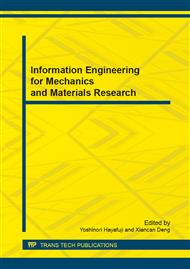p.279
p.285
p.291
p.296
p.303
p.309
p.321
p.327
p.336
The Research on Theory and Applications of Evolutionary Game Dynamics
Abstract:
This paper mainly introduces the basic dynamics model of evolutionary game theory: asymmetric replicator dynamic model and asymmetric replicator dynamic model and its relative conclusions. In order to facilitate understanding, a few simple examples are cited in the text to illustrate the differences between them. On the basis of the above, it also introduces theorists for random dynamic researches and theoretical achievement. Finally, this paper compares the classic game theory and evolutionary game theory in dynamic conceptual difference.
Info:
Periodical:
Pages:
309-317
DOI:
Citation:
Online since:
September 2013
Price:
Сopyright:
© 2013 Trans Tech Publications Ltd. All Rights Reserved
Share:
Citation:


